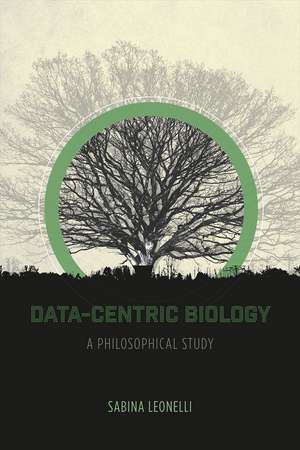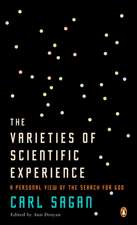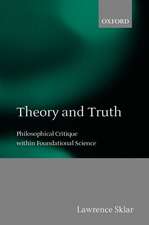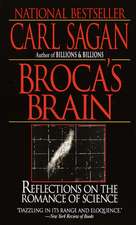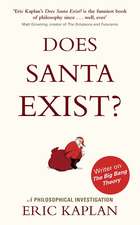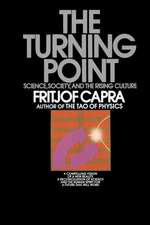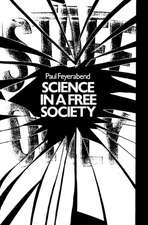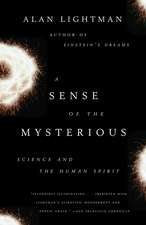Data-Centric Biology: A Philosophical Study
Autor Sabina Leonellien Limba Engleză Paperback – 18 noi 2016
In recent decades, there has been a major shift in the way researchers process and understand scientific data. Digital access to data has revolutionized ways of doing science in the biological and biomedical fields, leading to a data-intensive approach to research that uses innovative methods to produce, store, distribute, and interpret huge amounts of data. In Data-Centric Biology, Sabina Leonelli probes the implications of these advancements and confronts the questions they pose. Are we witnessing the rise of an entirely new scientific epistemology? If so, how does that alter the way we study and understand life—including ourselves?
Leonelli is the first scholar to use a study of contemporary data-intensive science to provide a philosophical analysis of the epistemology of data. In analyzing the rise, internal dynamics, and potential impact of data-centric biology, she draws on scholarship across diverse fields of science and the humanities—as well as her own original empirical material—to pinpoint the conditions under which digitally available data can further our understanding of life. Bridging the divide between historians, sociologists, and philosophers of science, Data-Centric Biology offers a nuanced account of an issue that is of fundamental importance to our understanding of contemporary scientific practices.
Leonelli is the first scholar to use a study of contemporary data-intensive science to provide a philosophical analysis of the epistemology of data. In analyzing the rise, internal dynamics, and potential impact of data-centric biology, she draws on scholarship across diverse fields of science and the humanities—as well as her own original empirical material—to pinpoint the conditions under which digitally available data can further our understanding of life. Bridging the divide between historians, sociologists, and philosophers of science, Data-Centric Biology offers a nuanced account of an issue that is of fundamental importance to our understanding of contemporary scientific practices.
Preț: 237.83 lei
Nou
Puncte Express: 357
Preț estimativ în valută:
45.51€ • 47.64$ • 37.88£
45.51€ • 47.64$ • 37.88£
Carte disponibilă
Livrare economică 10-24 martie
Livrare express 22-28 februarie pentru 25.34 lei
Preluare comenzi: 021 569.72.76
Specificații
ISBN-13: 9780226416472
ISBN-10: 022641647X
Pagini: 288
Ilustrații: 8 halftones
Dimensiuni: 152 x 229 x 20 mm
Greutate: 0.4 kg
Ediția:1
Editura: University of Chicago Press
Colecția University of Chicago Press
ISBN-10: 022641647X
Pagini: 288
Ilustrații: 8 halftones
Dimensiuni: 152 x 229 x 20 mm
Greutate: 0.4 kg
Ediția:1
Editura: University of Chicago Press
Colecția University of Chicago Press
Notă biografică
Sabina Leonelli is associate professor of philosophy and history of science at the University of Exeter.
Cuprins
Introduction
Part One: Data Journeys
1 Making Data Travel: Technology and Expertise
1.1 The Rise of Online Databases in Biology
1.2 Packaging Data for Travel
1.3 The Emerging Power of Database Curators
1.4 Data Journeys and Other Metaphors of Travel
2 Managing Data Journeys: Social Structures
2.1 The Institutionalization of Data Packaging
2.2 Centralization, Dissent, and Epistemic Diversity
2.3 Open Data as Global Commodities
2.4 Valuing Data
Part Two: Data-Centric Science
3 What Counts as Data?
3 What Counts as Data?
3.1 Data in the Philosophy of Science
3.2 A Relational Framework
3.3 The Nonlocality of Data
3.4 Packaging and Modeling
4 What Counts as Experiment?
4.1 Capturing Embodied Knowledge
4.2 When Standards Are Not Enough
4.3 Distributed Reasoning in Data Journeys
4.4 Dreams of Automation and Replicability
5 What Counts as Theory?
5.1 Classifying Data for Travel
5.2 Bio-Ontologies as Classificatory Theories
5.3 The Epistemic Role of Classification
5.4 Features of Classificatory Theories
5.5 Theory in Data-Centric Science
Part Three: Implications for Biology and Philosophy
6 Researching Life in the Digital Age
6.1 Varieties of Data Integration, Different Ways to Understand Organisms
6.2 The Impact of Data Centrism: Dangers and Exclusions
6.3 The Novelty of Data Centrism: Opportunities and Future Developments
7 Handling Data to Produce Knowledge
7.1 Problematizing Context
7.2 From Contexts to Situations
7.3 Situating Data in the Digital Age
Conclusion
Acknowledgments
Notes
Bibliography
Index
3.2 A Relational Framework
3.3 The Nonlocality of Data
3.4 Packaging and Modeling
4 What Counts as Experiment?
4.1 Capturing Embodied Knowledge
4.2 When Standards Are Not Enough
4.3 Distributed Reasoning in Data Journeys
4.4 Dreams of Automation and Replicability
5 What Counts as Theory?
5.1 Classifying Data for Travel
5.2 Bio-Ontologies as Classificatory Theories
5.3 The Epistemic Role of Classification
5.4 Features of Classificatory Theories
5.5 Theory in Data-Centric Science
Part Three: Implications for Biology and Philosophy
6 Researching Life in the Digital Age
6.1 Varieties of Data Integration, Different Ways to Understand Organisms
6.2 The Impact of Data Centrism: Dangers and Exclusions
6.3 The Novelty of Data Centrism: Opportunities and Future Developments
7 Handling Data to Produce Knowledge
7.1 Problematizing Context
7.2 From Contexts to Situations
7.3 Situating Data in the Digital Age
Conclusion
Acknowledgments
Notes
Bibliography
Index
Recenzii
"This is one of the most important books published in science studies over the last few years, and generalist readers should not be put off by its seemingly narrow topic, namely the actualization and validation of the vast mass of biological data encoded in digital formats, so that it may be ‘shared’ amongst relevant scientists. One should take the subtitle seriously: the world is bloated with attempts by philosophers to clarify the fine points of empiricism in science, but almost none of that achieves anything near the level of insight and enlightenment achieved in this short book. Perhaps more surprisingly, few authors prove capable of grasping the profound transformations happening in the political economy of science with greater sensitivity than Leonelli. Her pungent observations deserve the attention of anyone interested in the meaning and significance of the ‘Open Science’ movement."
“At the core of the book is a philosophical view of data, which is seen as a relational category, applicable to portable (though not immutable) research outputs that have or are expected to have evidential value for knowledge claims. A key feature of data-centrism is then, for Leonelli, the recognition that this evidential value is underdetermined, i.e. that we cannot say in advance what claims any given data may bear upon. This prospective and open nature of data has a number of consequences on how it is to be dealt with, which much of the book sets out to explore. . . . It offers very interesting epistemological views about data, its usage, and the challenges in its dissemination; it does an excellent job in revealing the often less visible work of curators and of the social and conceptual structures underlying broad efforts at data annotation, organization, and dissemination; and it represents an important resource for scholars interested in these issues.”
"Has there been a shift in what “data” means that is key to understanding the future of science? Sabina Leonelli’s new book, Data-Centric Biology: A Philosophical Study, argues for an important and fruitful answer outside the comfort zone of many philosophers. Along the way, she also delivers valuable insights into expanding efforts to standardize, automate, and communicate how scientists handle, share, reproduce, interpret, and store data."
"In Data-Centric Biology: A Philosophical Study, Sabina Leonelli provides the first book-length study of what is novel about data-centric research in the life sciences. . . . Her book is a laudable achievement in integrating insights from a methodologically permissive and pluralistic outlook."
"The dynamic, procedural themes running throughout Leonelli’s book usefully shift our philosophical focus from the abstracta of understanding how science works from a frozen perspective to a more useful analysis of how scientists in fact get the job done (when they do) and—more critically—how they might do it better."
“The first critical book-length study of data centrism in the life sciences and beyond, Data-Centric Biology sheds new and surprising light on the phenomenon of big data. Analytically competent, historically informed, sociologically sensitive, this book is a brilliant and successful demonstration of what bringing together philosophy, history, and social studies of science can achieve.”
“Going far beyond the epistemic concerns that preoccupy many philosophers, Data-Centric Biology brilliantly shows readers the practices that make data informative and meaningful, the biocurators who carefully attend to data’s forms, and the social, economic, and political resources on which our systems of Big Data Sciences depend. Leonelli is a leader in this area of scholarship, commanding a vast comprehensive knowledge of the historical, philosophical, and social studies of the life sciences and the data practices that sustain them.”
"Data-Centric Biology is a rich and carefully argued book that nicely integrates social and philosophical perspectives . . . a pathbreaking contribution"
